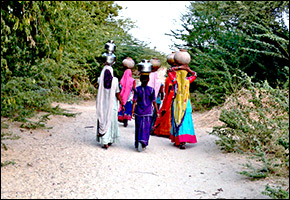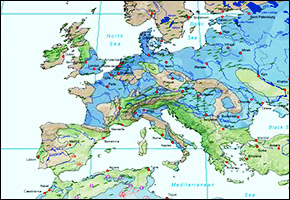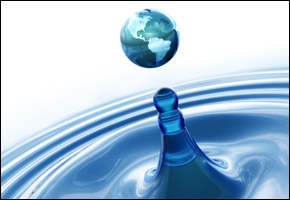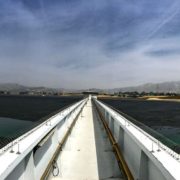Is Management Just for Men? 5th World Water Forum Calls Gender into Question

For centuries women have been responsible for water use — not only in the home, but also in the fields. Yet few women participate in resource management. Across the world men still make a significant majority of the decisions when it comes to controlling water. This year, the world is ready to talk about why.
Gender inequality will be a major theme this March at the 5th World Water Forum in Istanbul, Turkey. With fewer women receiving formal education in resource management than men, the forum seeks to create space for a diversity of knowledges.
While in developing countries women’s knowledge may be considered informal, leading eco-feminists suggest that such women possess a wealth of experience when it comes to consuming water sustainably. Their hours are often measured by the time they spend collecting the very water that keeps their families well-fed and healthy, their fields irrigated and their communities prosperous.
“Because of these roles, women have considerable knowledge and abilities when it comes to water management,” Turkish environmental engineer Arzu Özyol told Hurriyet Daily News, “which actually make them natural components of water and environmental policies.”
For key leaders of the upcoming World Water Forum, the venue is apt. Turkey, labeled as both East and West, could be the perfect place for finding sustainable solutions to the global water crisis — a crisis affecting all of humanity, regardless of gender or hemisphere.
Uganda’s Minister of Water and Environment, Maria Lubega Mutagamba, states in her forward to the Water Forum newsletter, “Lessons from Africa and the rest of the world have demonstrated that increased [women’s] participation in decision making leads to better operation and maintenance of water facilities, better health for the community, greater privacy and dignity for women, more girls attending school and increased income opportunities for women.”
In Uganda, water is a critical factor contributing to the poverty of women and the sustainable use of the environment. Mutagamba says that where water is concerned “the core components of poverty (capability, opportunity, security and empowerment) differ along gender lines.”
This year’s World Water Forum, bearing the theme Bridging Divides for Water, will broach the topic: what does it take to “main-stream” gender? Both Mutagamba and Özyol agree that answering this question can help the world recognize the relevance of women’s knowledge.
“There is no need for a big rhetoric,” she says. It is enough to send “the message that the more they are engaged in water management, the more they contribute to the economy of their households.”
Sources: Hurriyet Daily News, 5th World Water Forum









Leave a Reply
Want to join the discussion?Feel free to contribute!